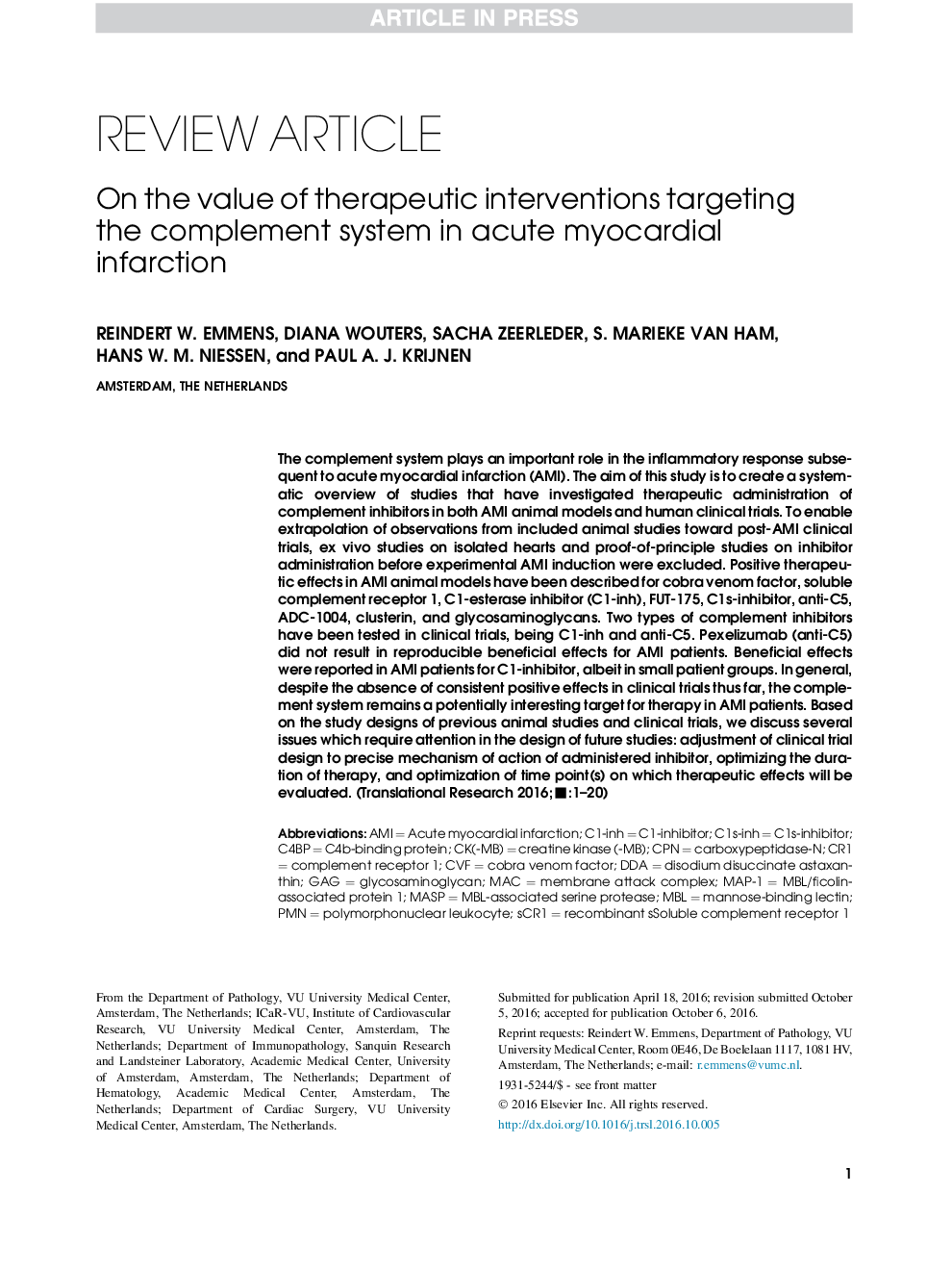| Article ID | Journal | Published Year | Pages | File Type |
|---|---|---|---|---|
| 5685100 | Translational Research | 2017 | 20 Pages |
Abstract
The complement system plays an important role in the inflammatory response subsequent to acute myocardial infarction (AMI). The aim of this study is to create a systematic overview of studies that have investigated therapeutic administration of complement inhibitors in both AMI animal models and human clinical trials. To enable extrapolation of observations from included animal studies toward post-AMI clinical trials, ex vivo studies on isolated hearts and proof-of-principle studies on inhibitor administration before experimental AMI induction were excluded. Positive therapeutic effects in AMI animal models have been described for cobra venom factor, soluble complement receptor 1, C1-esterase inhibitor (C1-inh), FUT-175, C1s-inhibitor, anti-C5, ADC-1004, clusterin, and glycosaminoglycans. Two types of complement inhibitors have been tested in clinical trials, being C1-inh and anti-C5. Pexelizumab (anti-C5) did not result in reproducible beneficial effects for AMI patients. Beneficial effects were reported in AMI patients for C1-inhibitor, albeit in small patient groups. In general, despite the absence of consistent positive effects in clinical trials thus far, the complement system remains a potentially interesting target for therapy in AMI patients. Based on the study designs of previous animal studies and clinical trials, we discuss several issues which require attention in the design of future studies: adjustment of clinical trial design to precise mechanism of action of administered inhibitor, optimizing the duration of therapy, and optimization of time point(s) on which therapeutic effects will be evaluated.
Keywords
Related Topics
Health Sciences
Medicine and Dentistry
Medicine and Dentistry (General)
Authors
Reindert W. Emmens, Diana Wouters, Sacha Zeerleder, S. Marieke van Ham, Hans W.M. Niessen, Paul A.J. Krijnen,
